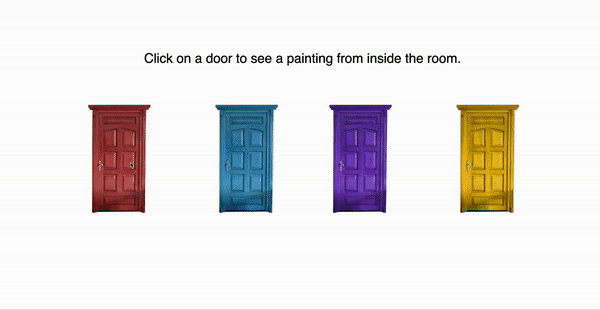As the old saying goes, “curiosity killed the cat” – so it’s with abject apologies to our feline friends that we inform you of a new study, which showed curiosity could be key to boosting learning and memory. In an experiment that had participants pretending to plan an art heist, researchers at Duke University saw how encouraging a curious, exploratory mindset allowed the would-be thieves to remember more details about the paintings they’d scouted.
Led by postdoctoral researcher Alyssa Sinclair, the team recruited 420 adults to play a video game in which they had to explore an art museum. Four colored doors represented different galleries, and clicking on a door revealed a painting and its value. Some were more valuable than others, and the players earned bonus money by finding more valuable paintings.
The game may have been the same for everyone, but the backstory given to each of the two groups of players was not. One group was told to act as though they were pulling an art heist, while the other was merely told to case the joint.
“For the urgent group, we told them, ‘You’re a master thief, you’re doing the heist right now. Steal as much as you can!’,” Sinclair explained in a statement. “Whereas for the curious group, we told them they were a thief who’s scouting the museum to plan a future heist.”

In the game, the players could choose to see paintings from behind four different doors, making sure to dodge the security guards (by hitting the spacebar) on their way.
Image credit: Alyssa Sinclair
The following day, the participants returned and were given a quiz including 175 different paintings – 75 new, and 100 from the previous day’s game. They were asked which paintings they recognized, and for those they found familiar, they were also asked to recall their value.
According to the results, rushing around a museum trying to purloin as many paintings as you possibly can is not the best way to learn about art.
“The curious group participants who imagined planning a heist had better memory the next day,” said Sinclair. “They correctly recognized more paintings. They remembered how much each painting was worth. And reward boosted memory, so valuable paintings were more likely to be remembered. But we didn’t see that in the urgent group participants who imagined executing the heist.”
However, it wasn’t all bad news for the urgent group. They were better at sniffing out the higher-value pieces, ending up with collections of paintings with an average value of $230 more than those in the curious group.
The researchers suggest that both curious and urgent strategies could have useful applications – you just have to match them to the correct scenarios.
“If you’re on a hike and there’s a bear, you don’t want to be thinking about long-term planning,” Sinclair said. “You need to focus on getting out of there right now.” By contrast, “Sometimes you want to motivate people to seek information and remember it in the future, which might have longer term consequences for lifestyle changes. Maybe for that, you need to put them in a curious mode so that they can actually retain that information.”
The team is now looking to how these different mindsets might activate different regions of the brain, in the hope that this work can be applied to a therapeutic context.
“Most of adult psychotherapy is about how we encourage flexibility, like with curious mode,” explained senior author Alison Adcock. “But it’s much harder for people to do since we spend a lot of our adult lives in an urgency mode. For me, the ultimate goal would be to teach people to do this for themselves. That’s empowering.”
We at IFLScience are already big supporters of a curious mindset (it’s not the name of our free e-magazine for nothing!), so the result of this study is certainly one that we can get behind.
The study is published in Proceedings of the National Academy of Sciences.
Source Link: There’s A Simple Brain Hack That Could Improve Learning